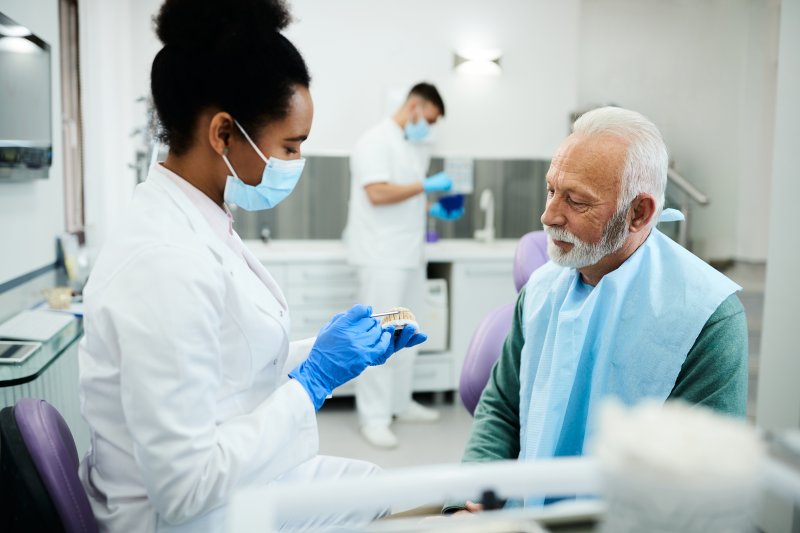
While today’s dentures are tailored for their patients, they don’t always fit as snugly as they should. These devices can become ill-fitting over time and cause various problems as a result. With that said, you should see a dentist when your prosthetics don’t “sit right”; they can perform repairs. Your Kent dental practice will gladly tell you more if you want. So, keep reading to learn about four common complications of ill-fitting dentures.
The Complications of Ill-Fitting Dentures
If left unchecked, ill-fitting dentures can cause various problems for your grin. Notable examples of these issues include:
Chafing & Discomfort
Dentures that fit poorly rub against certain parts of your mouth, especially the gum tissues. This chafing often leads to swollen gums, general soreness, and painful blisters. Worse yet, the rubbing can result in gum injuries and bleeding if you’re rather unlucky.
Angular Cheilitis
When dentures don’t fit well, they usually give you an uneven bite. This unevenness can make saliva pool near your mouth’s corners and cause an overgrowth of yeast. As those effects continue, they trigger angular cheilitis – an inflammatory skin condition that causes redness around your mouth. Such inflammation takes the form of red irritated streaks or patches.
Malnutrition
It’s normal to have a soft food diet when you first wear dentures, but you should eventually move to more solid meals as you adjust. Still, you may be forced into this diet long-term if your prosthetics are ill-fitting from the start or stop fitting well over time. That change would put you at risk of malnutrition and other health concerns.
Embarrassment
As you might’ve guessed, ill-fitting dentures can be embarrassing for their users. The prosthetics can leave you worried about how they look, whether they’ll work correctly, or if they’ll slip out of place. In doing so, they’ll drain you of confidence in your smile and prompt feelings of shame.
How Dentists Fix Ill-Fitting Dentures
As bad as ill-fitting dentures are, don’t despair; dentists can fix them. They’re trained to assess your prosthetic teeth and respond with the proper treatment.
Indeed, most dentists can treat dentures with poor fits. One of the most used methods is relining, which adds material to your restoration to improve its stability. Another approach is for the dentist to replace the old denture with a new one, especially if the current prosthetic has a break or fracture.
There’s no need to suffer the complications of ill-fitting dentures. Instead, see your dental provider – they’ll make sure your prosthetics are snug!
About the Practice
Complete Dental Care is based in Kent, WA. Led by a trio of talented dentists, our practice offers varied and wide-ranging dentistry for whole families. We can just as easily provide you with dental implants or dentures as we would a dental checkup. To that extent, our team is always ready and able to help a patient’s smile thrive! For more details or to book a visit, please contact us on our website or by phone at (253)-854-2714.

